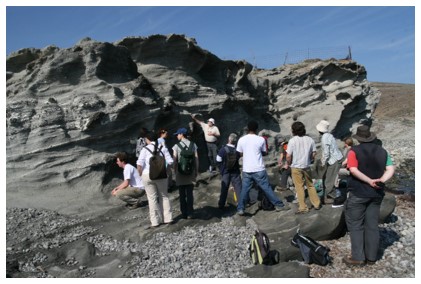Meeting the raw material demands of the energy transition, whilst moving to more responsible forms of resource stewardship, represents a multi-disciplinary challenge.
Within TARGET, we will provide training that will support our PhD researchers in developing the knowledge and skills needed to meet that challenge.
TARGET training will draw on experts from academia and industry to deliver training in a suite of technical and transferable skills, with optional pathways to specialise in pathways relevant to exploration, mining, sustainability, policy, and academia.

TARGET researchers will participate in a minimum of 40 days training over the 3.5 years of study composed of:
- an annual one-week workshop dedicated to their year group, and tailored to that cohort’s needs in terms of skills development – for the first three years of their study;
- an annual all-TARGET workshop with cross-year interactions, advanced training and opportunities to specialise in particular areas – all years of study;
- a number of one-day workshops;
- additional online events and in-person workshops attached to relevant conferences.
There will be two components to TARGET training:
Technical. This constitutes practical skills and knowledge of which every professional in the sector should at least have a general understanding. This will be augmented by opportunities to develop higher levels of expertise in specialist areas, as determined by research training needs analysis. Our training includes material not readily accessible through undergraduate or MSc programmes, and industry partners will help us to design and deliver.
Transferable. This component is to engender competency, communication, appreciation of work-place issues, and general professionalism (e.g. health and safety, DEI, teamwork, leadership, project management and financing, social and environmental considerations, time management). Transferable training is based on the Vitae Researcher Development Framework, which allows postgraduate students to evaluate and plan their professional development for academic and non-academic career paths, and for managers and supervisors of researchers to support their progress.
Placements and Mentoring
TARGET has been formed as a response to a growing skills gap in our raw materials supply chain. There is a need for innovation and new thought, and for those ideas, concepts and techniques to move out from academia into industry, government and the third sector.
Within TARGET, you will have the opportunity to work with a mentor throughout your PhD, to guide your skills and career development.
Each TARGET researcher will have the opportunity to take up a work placement with an industry partner too, allowing you to see how research can translate into practice or policy, and to bring new ideas back to your project.
